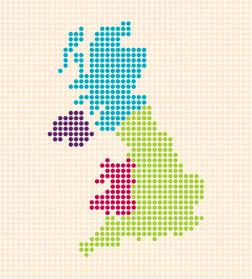Ofcom: UK Consumers Say Mobile Phones And Internet Are ‘Essential’ Services

Ofcom promises to ensure essential communication services remain affordable
More than half of British consumers consider voice, text and Internet access to be “essential services”, according to research from Ofcom, which also says 86 percent of the UK has no problem with paying for vital forms of communication.
There was a broad consensus as to what types of communication were considered essential, with many citing the ability to contact friends, family and the emergency services as well as accessing information, education and entertainment as things they valued most.
More specifically, 61 percent said that voice services over a mobile or landline connection were essential for them, while 59 percent said mobile voice and text was the most important and 57 percent preferred personal Internet access.
Affordable essentials
Responses differed according to age, with landlines essential for 61 percent of those 75 or above compared to just 12 percent of 16-24 year olds. The opposite was true with accessing Internet on a smartphone, which was vital for 53 percent of 16-24 year olds but no one over 75.
 Ofcom says that among those who pay for their own communications, 86 percent said they never had any difficulty affording their bills, something which the communications regulator says is a result of intense competition and prices falling over the past ten years.
Ofcom says that among those who pay for their own communications, 86 percent said they never had any difficulty affording their bills, something which the communications regulator says is a result of intense competition and prices falling over the past ten years.
As for the remaining 14 percent, the majority had to be careful when managing costs, while almost half had to cut back on luxuries and just over a third had to opt for cheaper goods and services. Fortunately, only two percernt have ever been in debt or fallen behind on payments, however just 26 percent of consumers on income support were aware of social landline tariffs offered by BT and Hull-based KCOM.
Overall, Ofcom said the high takeup of communications services indicated that cost wasn’t a barrier to access, even if some were unable to have certain services they wanted due to financial constraints. Around 95 percent of households have at least one mobile phone, 85 percent have a landline and 82 percent have an Internet connection. Seven percent say they would like broadband but don’t have it because it’s too expensive.
Consumer protection
The research forms part of Ofcom’s remit to ensure consumers have access to essential services and can afford them. Going forward, the watchdog plans to improve links between debt charities and communications providers to be more understanding of consumers’ changing circumstances and to increase awareness of affordable deals.
“While it’s encouraging that the majority of people don’t experience difficulties paying for their communications services, it’s important that help is available for those who do,” says Claudio Pollack, Ofcom’s consumer group director. “We’re working to ensure that all consumers can benefit from the communications services which are most important for modern life.”
Ofcom has implemented a number of measures designed to keep the cost of communications down, including protection against mid-contract price rises, and reserved some spectrum for a fourth operator during the 4G auction last year.
Observers have welcomed its latest acknowledgement of the importance of communication services, but say the regulator must continue to ensure they are affordable.
“It might seem rather obvious to state that telecoms services are essential, but it’s an important distinction to make because there is now an expectation and a responsibility to deliver these services to vulnerable people,” says Ernest Doku, telecoms expert at uSwitch. “Technology has asserted its rightful place in our lives, but it needs to be accessible to all. We must ensure everyone can afford entry-level mobile and broadband deals.
“With around one in eight saying that telecoms services are unaffordable, there is plenty of work to be done.”